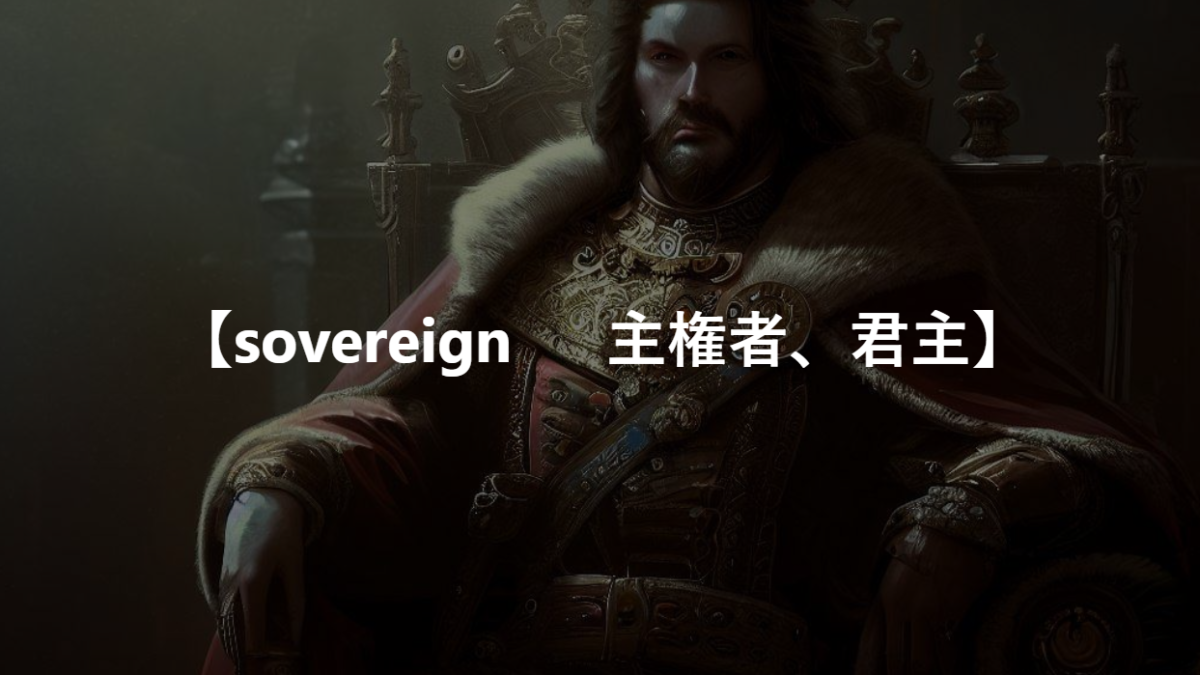「国民こそが、その国の真のsovereignである」
📚 意味と用法
sovereign は、名詞と形容詞の両方で使われます。名詞としては、王や女王のような国の「君主」や「主権者」を指します。形容詞としては、国が他国に支配されず、自らを統治する最高の権力を持つ「主権を持つ」「独立した」状態を表します。
独立国家 (An independent nation)
The country became a sovereign nation in 1947.
(その国は1947年に主権国家となった。)
国の君主 (The ruler of a country)
The sovereign has the power to declare war.
(君主は宣戦布告する権力を持つ。)
🕰️ 語源と歴史
「Sovereign」は、古フランス語の「souverain」(最高の、至上の)に由来します。これは、通俗ラテン語の「*superanus」から来ており、さらにラテン語の「super」(上に、超えて)に遡ります。”super” は「スーパー」の語源でもあります。「他よりも上にある」という元の意味が、最高の権力を持つ「君主」や「主権」という意味に発展しました。
🔄 類義語
⚡ 対義語
関連する対比
sovereign (主権を持つ) 国家は自らを統治しますが、dependent (従属的な) 地域は他国に支配されています。
💬 実践的な例文
The people are the sovereign in a democracy.
民主主義において、国民こそが主権者である。
The treaty respected the sovereign rights of all nations.
その条約は、すべての国家の主権を尊重した。
Queen Victoria was the sovereign of a vast empire.
ヴィクトリア女王は広大な帝国の君主だった。
A sovereign remedy for a cold is rest and fluids.
風邪に対する最も効果的な治療法は、休息と水分補給だ。
National sovereignty is a fundamental principle of international law.
国家主権は、国際法の基本原則である。
🧠 練習問題
以下の空欄に入る最も適切な単語を選んでください。
1. A country that governs itself is a ______ nation.
解説:
自らを統治する国は、「主権国家 (sovereign nation)」です。
2. The supreme power of a state to govern itself is called ______.
解説:
国家が自らを統治する最高の権力は、「主権 (sovereignty)」と呼ばれます。
3. The opposite of a sovereign state is a ______ territory.
解説:
主権国家の反対は、「従属的な (dependent)」領土です。
4. A king or queen is a type of ______.
解説:
王や女王は、「君主 (sovereign)」の一種です。
5. The root “super” in “sovereign” means ______.
解説:
語源で説明した通り、ラテン語の “super” は「上に (above)」を意味します。

